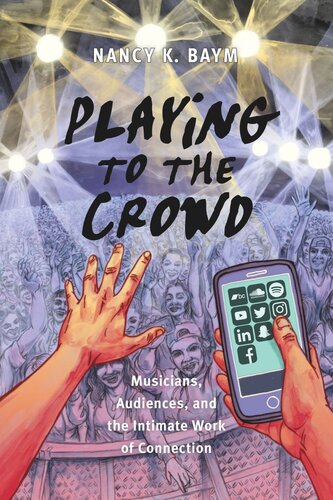

Most ebook files are in PDF format, so you can easily read them using various software such as Foxit Reader or directly on the Google Chrome browser.
Some ebook files are released by publishers in other formats such as .awz, .mobi, .epub, .fb2, etc. You may need to install specific software to read these formats on mobile/PC, such as Calibre.
Please read the tutorial at this link: https://ebookbell.com/faq
We offer FREE conversion to the popular formats you request; however, this may take some time. Therefore, right after payment, please email us, and we will try to provide the service as quickly as possible.
For some exceptional file formats or broken links (if any), please refrain from opening any disputes. Instead, email us first, and we will try to assist within a maximum of 6 hours.
EbookBell Team

4.1
90 reviewsExplains what happened to music—for both artists and fans—when music went online.
Playing to the Crowd explores and explains how the rise of digital communication platforms has transformed artist-fan relationships into something closer to friendship or family. Through in-depth interviews with musicians such as Billy Bragg and Richie Hawtin, as well as members of the Cure, UB40, and Throwing Muses, Baym reveals how new media has facilitated these connections through the active, and often required, participation of the artists and their devoted, digital fan base.
Before the rise of social sharing and user-generated content, fans were mostly seen as an undifferentiated and unidentifiable mass, often mediated through record labels and the press. However, in today’s networked era, musicians and fans have built more active relationships through social media, fan sites, and artist sites, giving fans a new sense of intimacy and offering artists unparalleled information about their audiences. However, this comes at a price. For audiences, meeting their heroes can kill the mystique. And for artists, maintaining active relationships with so many people can be both personally and financially draining, as well as extremely labor intensive.
Drawing on her own rich history as an active and deeply connected music fan, Baym offers an entirely new approach to media culture, arguing that the work musicians put in to create and maintain these intimate relationships reflect the demands of the gig economy, one which requires resources and strategies that we must all come to recognize and appreciate.